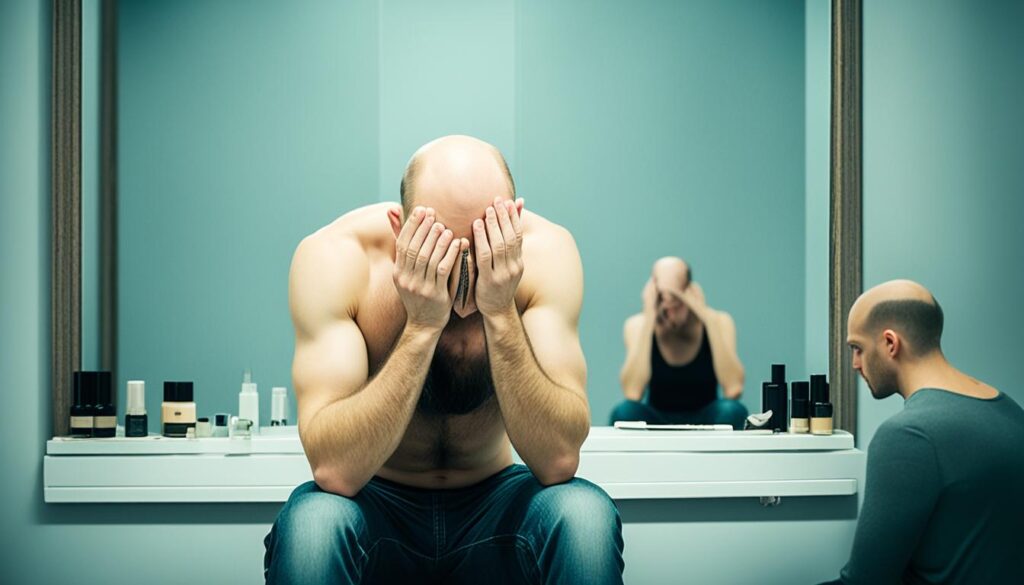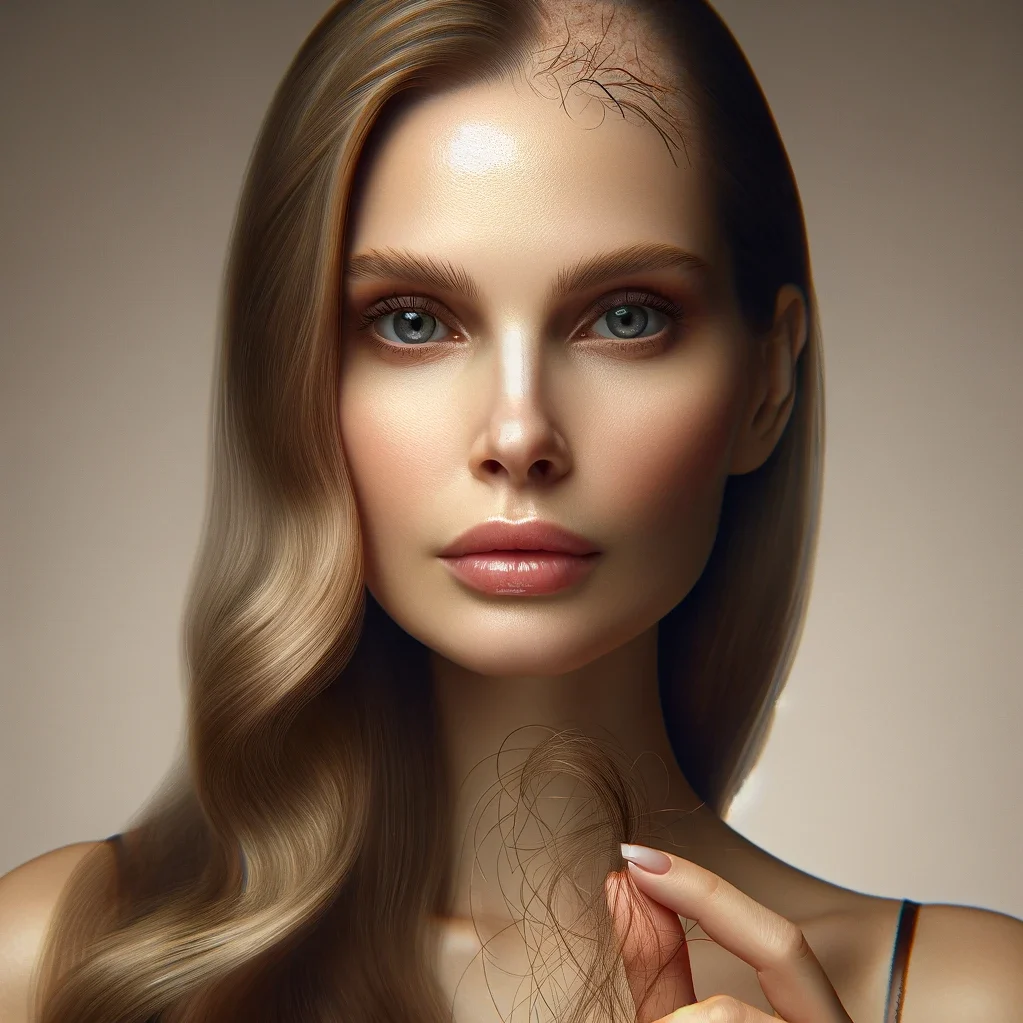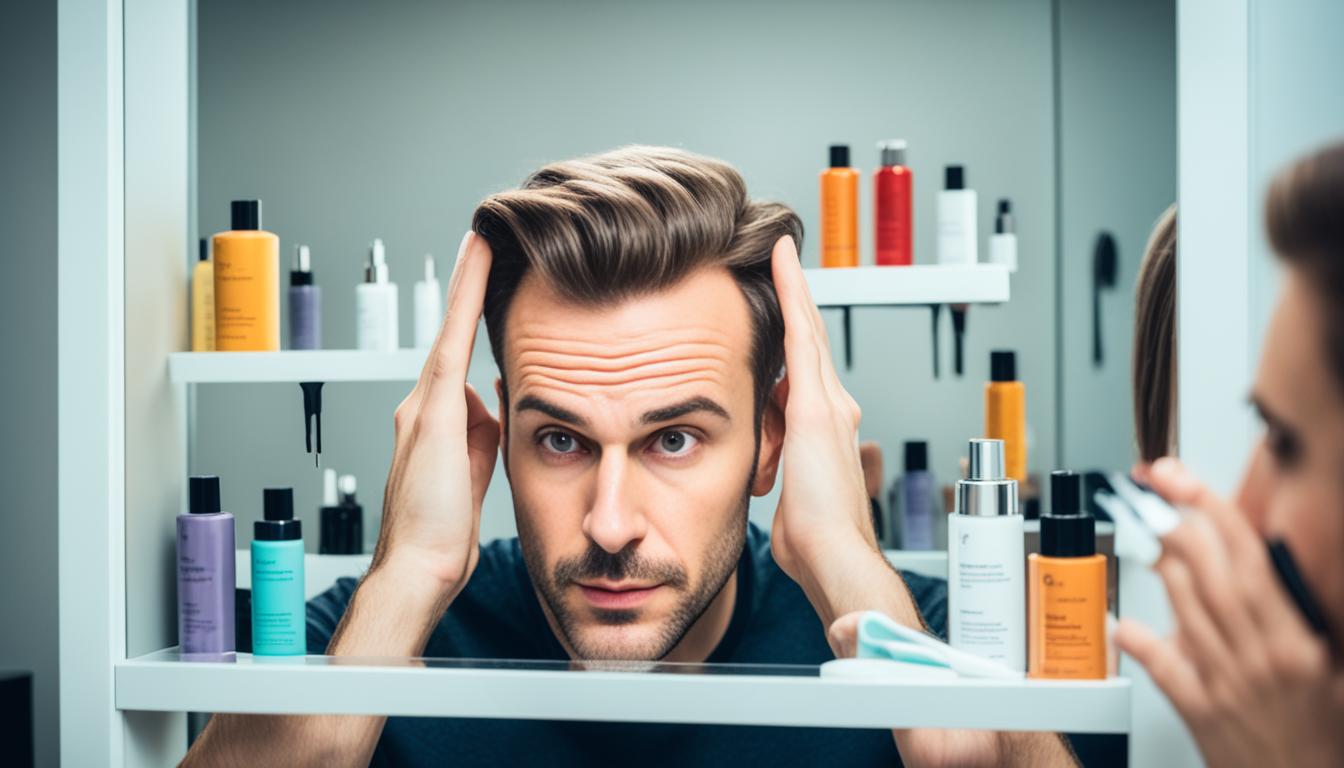Dealing with hair loss can be a challenging experience, particularly when it occurs at a young age. At 30 years old, many individuals are still in the prime of their lives, and the loss of hair can significantly impact their self-esteem. However, there are strategies that can help cope with hair loss and regain the confidence that may have been diminished.
Understanding the Psychological Impact of Hair Loss
Hair loss can have a significant impact on an individual’s self-esteem and confidence. When faced with the loss of hair, it is common to experience a range of emotions that can affect one’s overall well-being and perception of self. The psychological effects can be especially pronounced for those who experience hair loss at an early age.
For many, hair loss triggers feelings of unattractiveness, aging, and a perceived loss of strength or sexual prowess. These emotions can have a profound effect on an individual’s sense of self-worth and may lead to a decline in overall self-esteem.
However, it’s important to remember that hair loss is not a threat to one’s life or health. While it may feel distressing, it is crucial to put things in perspective and be practical about the situation. Understanding that hair loss is a natural occurrence can help reduce the emotional weight associated with it.
One effective strategy for coping with hair loss is to find a style that suits you and wear it with confidence. Embracing a new look can help shift the focus from the absence of hair to other aspects of your appearance that you appreciate. It’s important to remember that beauty comes in various forms, and confidence can be derived from different aspects of your being.
Seeking talk therapy can also be beneficial for those struggling with depression or anxiety related to hair loss. A trained therapist can provide guidance and support, helping individuals navigate their emotions and develop strategies to cope more effectively.
“Hair loss is not a reflection of your worth or attractiveness. Embracing and accepting your unique appearance can lead to improved self-esteem and a positive outlook.” – Dr. Jane Wilson, Psychologist
By accepting and embracing hair loss as a part of oneself, individuals can begin to rebuild their self-esteem. Focusing on qualities and characteristics that extend beyond physical appearance can help foster a positive self-image. It is essential to remember that hair loss does not define your worth or attractiveness.
Combating the psychological impact of hair loss requires a holistic approach that combines self-acceptance, practicality, and emotional support. By addressing the emotional effects of hair loss, individuals can regain their confidence and embrace their unique selves.

| Psychological Effects of Hair Loss | Strategies for Coping |
|---|---|
| Feelings of unattractiveness | Find a style that suits you and wear it with confidence |
| Perceived loss of strength or sexual prowess | Seek talk therapy to address depression or anxiety |
| Age-related concerns | Put things in perspective and focus on other aspects of your appearance that you appreciate |
Available Treatment Options for Hair Loss
When faced with hair loss, it’s essential to explore the various treatment options available. Today, there are several effective approaches to combatting hair loss and promoting hair regrowth.
FDA-Approved Medications
Two FDA-approved medications have shown promising results in managing hair loss: finasteride and minoxidil. Finasteride works by inhibiting the conversion of testosterone into dihydrotestosterone (DHT), a hormone responsible for damaging hair follicles. By reducing DHT levels, finasteride slows down hair loss and can even stimulate hair regrowth. Minoxidil, on the other hand, is a topical solution that enhances blood flow to the scalp, revitalizing hair follicles and promoting hair growth.
Hair Transplant Surgery
For individuals seeking a more permanent solution, hair transplant surgery is an effective option. During this procedure, hair follicles are harvested from the back and sides of the scalp, areas resistant to hair loss. These healthy follicles are then transplanted to the areas experiencing hair loss, allowing new hair to grow in those areas. This surgical procedure requires consultation with a healthcare professional to determine the eligibility and suitability of the patient.
It’s crucial to note that the choice of treatment depends on several factors, such as the extent of hair loss, individual goals, and medical history. Therefore, consulting with a healthcare professional specializing in hair loss is essential for personalized guidance.
Additionally, maintaining a healthy lifestyle, including a balanced diet and regular exercise, can positively impact hair growth. Nutritional deficiencies, such as iron or vitamin deficiencies, can contribute to hair loss, so addressing these deficiencies can support healthier hair growth.
When it comes to combating hair loss, there are multiple treatment options available. FDA-approved medications like finasteride and minoxidil can help slow down hair loss and promote hair regrowth. Hair transplant surgery offers a more permanent solution for restoring hair in areas of significant loss. Alongside these treatments, maintaining a healthy lifestyle and addressing nutritional deficiencies can contribute to healthier hair growth. Consulting with a healthcare professional is crucial to determine the most suitable treatment approach based on individual needs and goals.
Conclusion
Regaining self-esteem and rebuilding confidence after experiencing hair loss at 30 is a journey that requires the right strategies and mindset. By putting things in perspective, being practical, finding a hairstyle that suits you, and exploring available treatment options, individuals can take positive steps towards improving their self-image.
It’s important to remember that hair loss is a common occurrence and does not define one’s worth or attractiveness. Accepting and embracing oneself with or without hair is key to cultivating a positive self-image. By focusing on inner qualities and embracing personal strengths, individuals can regain their sense of self-worth and confidently embrace their unique beauty.
Seeking support from loved ones, talking to a trusted therapist, or joining support groups can also provide a valuable source of encouragement and understanding during this journey. Remember, regaining self-esteem is not an overnight process, but with patience, self-care, and the right mindset, it is possible to rebuild confidence and live a fulfilling life after hair loss.
FAQ
What strategies can help me regain self-esteem after experiencing hair loss at 30?
There are several strategies that can help you regain self-esteem after experiencing hair loss at 30. These include putting things in perspective, being practical about it, finding a style that suits you, being careful when caring for your hair, trying talk therapy if feeling depressed or anxious, using FDA-approved medications like finasteride and minoxidil, and considering hair transplantation surgery.
How does hair loss impact self-esteem and confidence?
Hair loss can have a significant impact on an individual’s self-esteem and confidence. It can trigger feelings of unattractiveness, age, and loss of strength or sexual prowess. The psychological effects may be even greater for those who experience hair loss at an early age. However, it’s important to remember that hair loss is not a threat to one’s life or health. By putting things in perspective and being practical about it, individuals can reduce the emotional weight of hair loss and improve their self-image.
What treatment options are available for hair loss?
There are various treatment options available for hair loss. FDA-approved medications like finasteride and minoxidil can help slow down hair loss and even promote hair regrowth. These medications work by preventing the conversion of testosterone into DHT, a hormone that damages hair follicles. Another option is hair transplant surgery, where hair follicles are harvested from the back and sides of the scalp and transplanted to areas experiencing hair loss. It’s important to consult with a healthcare professional to determine the most suitable treatment approach based on individual needs and goals.
Is it possible to regain self-esteem after experiencing hair loss at 30?
Yes, it is possible to regain self-esteem after experiencing hair loss at 30. By putting things in perspective, being practical, finding a style that suits you, and seeking treatment options, you can rebuild your confidence and improve your self-image. It’s important to remember that hair loss is common and does not define your worth or attractiveness. By embracing and accepting yourself, you can cultivate a positive self-image and regain your sense of self-worth.

